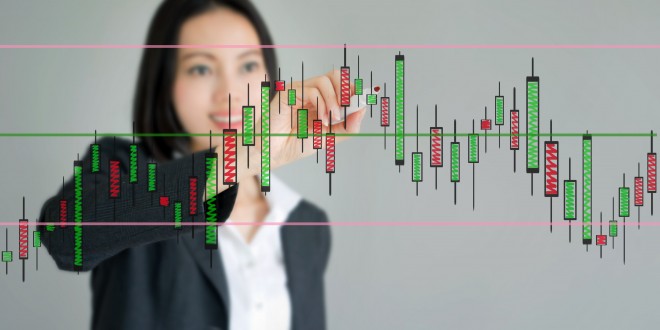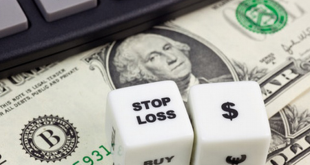The 5 forex trading tips listed below are mentioned throughout this book. That’s because even though they can’t guarantee success ― nothing ever can, otherwise everybody would be successful ― they can save you a lot of money. Experience shows that many beginning forex traders bleed money mainly because they fail to follow the next five principles:
Forex Beginner Tip 1. Money Management
Rule number 1 for every forex trader is to survive. Every trader has losing trades, but when you go broke you can put yourself in a position where you can no longer have winning trades. Therefore, before everytying else you have to make sure you stay in the game.
Many beginning and/or consistently losing traders focus exclusively on having a profitable trading strategy. But even though a good trading strategy is definitely important, using solid money management and having a rational, disciplined trading attitude will get you further at the end of the day.
Two rules of thumb for good money management are not to risk more than 3% of your trading capital per trade and making sure you have enough trading capital for at least 40 trades when you are a beginner.
Forex Beginner Tip 2. Always use a stop loss
The stop loss is perhaps the most powerful weapon in your arsenal as a forex trader, just as the most powerful weapon of the professional poker player is the fold (if that means anything to you). The stop loss allows you to predetermine your risk down to the pip, therefore ALWAYS use it!
There are really only advantages to putting in a stop loss. It forces you to think about when the trade you’re about to put on would be considered a failure. After you’ve opened the position you might talk yourself into staying in a trade going bad, using all kinds of irrational excuses. But if you’ve set a stop loss before opening the trade (when you were still thinking rationally) you’ll always have that shining beacon, reminding you that you’d be a weak, emotional idiot if you stayed in the trade after the stop loss is triggered.
Setting a stop loss also forces you to think about your profitable trades/losing trades ratio. Suppose you want to risk 50 pips to win 100 pips, that would mean you’d need a winning trade at least 33% of the time to break even. Does your trading strategy get you a profitable trade 33% of the time?
Another advantage of the stop loss is that you don’t have to be afraid that one badly chosen trade will kill your whole account in case the trade goes bad and for some reason you’re not in a position to close it manually. So remember to always put in a stop loss and never move it further away after opening the trade.
Forex Beginner Tip 3. Be realistic
Unless you are amazingly lucky you can’t expect to close 80% of your trades profitably or turn a $500 trading capital into a $10,000 trading capital in six months. With those kind of expectations you’re simply setting yourself up for disappointment, frustration and failure. (unless you’re very, very lucky).
Try to look at things realistically right from the start. Determine an attainable percentage of winning trades considering your strategy and experience. Ask yourself how much time you can spend on trading and learning. When you have a clear view of your trading tools and conditions, you will find it much easier to work towards a profitable trading strategy.
For example, suppose you’re a day trader with a trading strategy where you risk, on average, 15 pips to win 30. After doing about 200 trades, it turns out that 50% of your trades reached their profit target of 30 pips; the other 50% of the trades went sour and triggered your stop loss. So you’ve won 100 x 30 pips = 3,000 pips and lost 100 x 15 pips = 1,500 pips, for a gross revenue of 1.500 pips total. Gross revenue, because you still have to deduct the spread, i.e. the transaction cost you pay your broker, remember? Let’s say the spread is 2 pips per position, meaning your 200 trades costed you 400 pips. Your net revenue then, was 1.100 pips over 200 trades, or 5.5 pips per trade.
Of course data on 200 trades isn’t enough yet to be of statistical significance, but at least it would give you something to work with: on average, each trade nets you 5,5 pips.
Forex Beginner Tip 4. Interact with other traders
For beginning traders an often overlooked source of information is other traders. Of course, reading books about forex is important. Books can provide you with a solid basis in a short time, providing a foundation to build on.
Practicing is another important factor to get the hang of things quickly, but you’d be surprised to find out how often fellow traders can give you valuable feedback about your trading strategy, or about alternative ways for putting on a particular trade. You should therefore become part of an online forex community and consider starting a trading blog, so people can comment on your strategy.
Don’t be embarrassed because you’re a beginner; remember that we all started out as beginners at some point, and many of the traders you’ll meet on online trading forums are also just starting out.
Forex Beginner Tip 5.Keep your emotions under control
This last trading tip is perhaps the most important one. As previously said, trading on the forex is exciting, fun and dynamic, but it’s crucial not to get carried away because of this. Successful traders approach trading like a business, not a hobby.
You use your trading capital to make business decisions; some will make you money, others will cost money, it’s that simple. But as soon as you lose sight of your rationality I promise you that the losses will stack up pretty quickly.
I’m talking about those moments that you do move your stop loss, because you just can’t get yourself to take the hit. Or those moments that you decide to get in right now, even though your trading plan tells you to wait, because you’re so scared to miss the trade, or perhaps you’re just bored. Those moments that you’re so mad that you lost 10 trades in a row that you start trading with triple your normal risk, taking positions in currency pairs you normally never trade in.
Those are the moments you lose in 30 minutes what it took you three weeks to build up.
 Trade Forex Forex and Commodities News
Trade Forex Forex and Commodities News




